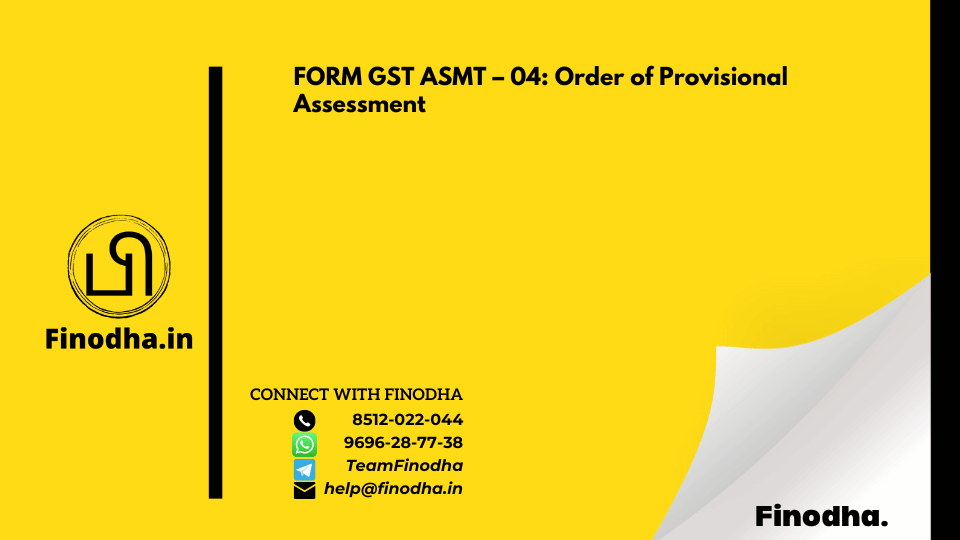Important Keyword: Chapter VI-A, IFOS, Section 80TTB.
Table of Contents
Section 80TTB: Interest Deduction on Deposits for Senior Citizens
Senior citizens hold a pivotal role in Indian society, yet they often face substantial challenges, particularly in managing healthcare expenses and ensuring financial stability amidst fluctuating economic conditions. To address these concerns, the government has implemented various tax deductions aimed at easing the burden on senior citizens in India. One notable initiative introduced in the 2018 budget is Section 80TTB of the Income Tax Act, 1961.
Effective from the financial year 2018-19 onwards (Assessment Year 2019-20), Section 80TTB offers significant benefits to senior citizens. It specifically focuses on alleviating their financial strain by providing deductions tailored to their needs. This provision acknowledges the higher healthcare costs seniors typically incur and aims to enhance their overall financial security.
To claim a deduction under Section 80TTB of the Income Tax Act, 1961, individuals must meet specific eligibility criteria and adhere to certain rules regarding the type of interest income earned.
Eligibility Criteria:
- Age Requirement: The taxpayer must be a resident individual who has attained the age of 60 years or more during the relevant financial year (AY 2023-24 in this case).
- Exclusions: Non-Resident Indians (NRIs) and resident individuals below the age of 60 years cannot claim this deduction. Additionally, if the taxpayer has opted for the new tax regime, they are not eligible to claim deductions under Section 80TTB.
Threshold Limit for Deduction:
- A resident senior citizen can claim a deduction of up to INR 50,000 on interest income under Section 80TTB.
- If the total interest income earned from eligible deposits (like bank FDs and SCSS) is less than or equal to INR 50,000, the entire amount can be claimed as a deduction.
- If the interest income exceeds INR 50,000, only a maximum of INR 50,000 can be claimed as a deduction. The excess interest income will be taxable.
Types of Eligible Interest Income:
- Interest earned from Bank Deposits (including savings accounts, fixed deposits, recurring deposits).
- Interest income from deposits with registered Co-operative Societies engaged in banking.
- Interest income from Post Office Deposits (such as Senior Citizens Savings Scheme, NSC, Time Deposits, etc.).
Types of Ineligible Interest Income:
- Interest earned on deposits held by firms, associations of persons (AOP), or body of individuals (BOI) on behalf of their partners or members.
- Interest income from Bonds, Debentures, and Non-Banking Financial Companies (NBFCs).
Calculation Example: Mr. Inder, a resident senior citizen, earned the following interest income during AY 2023-24:
- Interest from Bank FDs: INR 26,000
- Interest from Senior Citizens Savings Scheme (SCSS): INR 32,000
- Interest from Debentures: INR 3,500
Based on these earnings, Mr. Inder can claim a deduction under Section 80TTB only on the interest income from Bank FDs (INR 26,000) and SCSS (INR 32,000), totaling INR 58,000. However, since the maximum deductible limit under Section 80TTB is INR 50,000, Mr. Inder can claim INR 50,000 as a deduction, and the remaining INR 8,000 will be taxable.
Calculation of total taxable interest:
| Particulars | Amount |
| Bank FD interest | 26,000 |
| SCSS interest | 32,000 |
| Debenture Interest | 3,500 |
| Total Interest Income | 61,500 |
| Total Interest Income Exemption u/s 80TTB | 50,000 |
| Total Taxable Interest | 11,500 |
When reporting the deduction under Section 80TTB while filing your Income Tax Return (ITR), it’s essential to follow specific steps and understand the documentation requirements.
Steps to Claim Deduction in ITR:
- Income Calculation: Start by calculating your total interest income earned during the financial year from eligible sources such as bank FDs, Senior Citizens Savings Scheme (SCSS), and similar deposits. Sum up this amount under the head “Income From Other Sources” in your ITR.
- Claiming Deduction: Enter the eligible deduction amount under Section 80TTB of the Income Tax Act in the appropriate section of your ITR form (ITR 1, ITR 2, ITR 3, or ITR 4, depending on your income sources).
- No Proof Submission: While filing your ITR, you are not required to submit any proof or documents supporting your claim for Section 80TTB deduction. However, it’s advisable to maintain records such as bank statements, interest certificates, and deposit documents for your own reference and in case of any future verification by tax authorities.
Supporting Documents:
- Bank Statements: These documents should clearly show the interest income earned from bank FDs and savings accounts.
- Interest Certificates: Issued by banks or post offices, these certificates detail the interest income earned on specific deposits like SCSS or other eligible schemes.
- Deposit Documents: These include fixed deposit certificates, receipts from post office deposits, or any other relevant documents that validate your claim.
Comparison between Section 80TTA and 80TTB
| Parameters | Section 80TTA | Section 80TTB |
| Eligibility | Individuals and HUFs (below 60 years) | Only senior citizens |
| Exemption Limit | Maximum INR 10,000 per year | Maximum INR 50,000 per year |
| Specified income | Deduction on interest from the savings account only | Deduction on interest from all kinds of deposits |
| Applicability for NRI’s | NRI who have a savings account (NRO) can claim a deduction u/s 80TTA | NRI’s are not eligible to claim deductions under 80TTB |
Read More: Section 80EEA: Deduction on Home Loan Interest
Web Stories: Section 80EEA: Deduction on Home Loan Interest
Official Income Tax Return filing website: https://incometaxindia.gov.in/





0 Comments